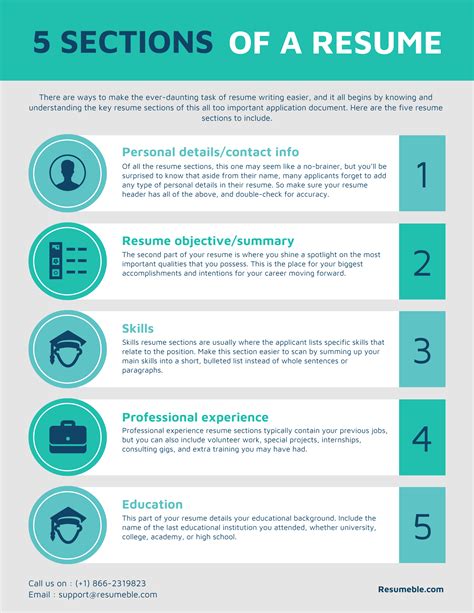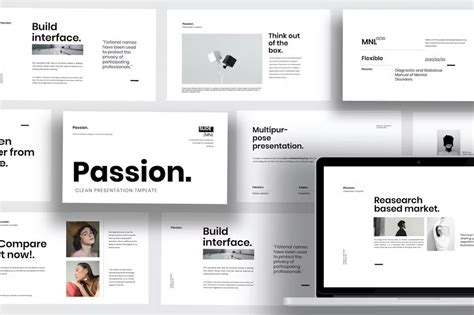As you embark on the journey of securing a coveted position in today's competitive job market, one document holds the key to unlocking countless career opportunities - your curriculum vitae. Crafting a compelling CV requires careful consideration, strategic thinking, and a deep understanding of what employers are looking for. In this article, we present some invaluable tips and techniques to help you create a standout CV that grabs attention, impresses hiring managers, and lands you that dream job.
Emphasize your Unique Skills and Experience
When it comes to drafting your CV, it is crucial to highlight your individual skills and experience that set you apart from the competition. Consider what makes you unique as a professional and reflect on the achievements and successes that best demonstrate your capabilities. By emphasizing these qualities, you not only differentiate yourself from other candidates but also showcase your potential value to prospective employers.
Showcase Results and Achievements
An effective CV is not simply a chronicle of past roles and responsibilities; it is an opportunity to showcase your tangible results and accomplishments. Employers are always looking for candidates who can demonstrate their ability to make a difference and contribute to the success of the organization. Therefore, focus on highlighting specific achievements in your previous positions that illustrate your impact, such as exceeding targets, increasing revenue, or implementing innovative solutions.
Format and Structure Matter
As the saying goes, "first impressions matter," and this holds true for your CV as well. Pay attention to the format and structure of your document to ensure it is clean, concise, and visually appealing. Use clear headings and bullet points to organize information and make it easy for potential employers to skim through key details. Additionally, be mindful of font style and size to create a polished and professional look.
Essential Components to Include in Your CV

Crafting a compelling curriculum vitae (CV) requires careful consideration of the key elements that will capture the attention of potential employers. By strategically including specific details, you can showcase your qualifications, skills, and experiences effectively. Here are some essential components to include in your CV to make it stand out from the competition:
- Contact Information: Provide accurate and up-to-date contact information including your name, phone number, email address, and professional social media profiles, such as LinkedIn.
- Profile Summary: Write a concise and engaging summary of your professional background and career objectives. This section should highlight your most relevant skills, experience, and achievements.
- Education: Include details about your educational qualifications, such as degrees earned, institution names, locations, and dates of graduation. Mention any academic honors or accomplishments.
- Work Experience: List your work history in reverse chronological order, starting with your most recent or current position. Include the job title, company name, location, and dates of employment. Emphasize your accomplishments, responsibilities, and specific skills gained in each role.
- Skills: Create a separate section to highlight your relevant skills, both technical and soft. Be specific and include examples of how you have applied these skills in previous roles.
- Achievements and Awards: Showcase any notable achievements or awards that demonstrate your competence and distinction in your field.
- Certifications and Training: Include any professional certifications or additional training courses that are relevant to your desired position.
- References: Provide references from previous employers or mentors who can vouch for your abilities and character. Include their names, job titles, contact information, and a brief description of your professional relationship.
By including these key elements in your CV, you will create a comprehensive and impactful document that highlights your qualifications and entices potential employers to consider you as a strong candidate for the job. Remember to tailor your CV to each specific job application by highlighting the most relevant experiences and skills that align with the requirements of the position.
Showcase Your Relevant Skills and Experience
Highlighting your relevant skills and experience is crucial when crafting an effective resume. This section allows you to showcase your unique abilities and qualifications that make you the perfect fit for the job you are applying for.
Emphasize your accomplishments: Instead of simply listing your duties or responsibilities, focus on the results you achieved in each role. Highlight specific projects you worked on, targets you met, or awards you received. This helps to demonstrate your ability to deliver tangible results.
Use action verbs: When describing your skills and experience, use strong action verbs to bring them to life. Words like "managed," "analyzed," "led," and "developed" can make your accomplishments sound more dynamic and impactful.
Showcase relevant skills: Tailor your resume to the specific job you are applying for by highlighting the skills that are most relevant to the role. Consider the job description and incorporate keywords or phrases that align with the skills they are looking for. This shows that you have the necessary expertise for the position.
Quantify your achievements: Whenever possible, include quantifiable metrics to illustrate the impact you had in previous roles. For example, instead of saying you "increased sales," you could say you "increased sales by 20% within six months." These numbers provide concrete evidence of your abilities.
Include relevant certifications and training: If you have obtained any additional certifications or relevant training, be sure to include them in this section. This not only demonstrates your commitment to professional development but also showcases your willingness to acquire new skills.
Remember, this section is your opportunity to impress potential employers with your skills and experience. Take the time to carefully craft your resume, highlighting the most relevant aspects and using strong language to make yourself stand out from the competition.
Create a Clear and Professional Layout

When it comes to crafting an impressive resume, one crucial aspect to consider is the layout. A clear and professional layout helps to grab the attention of potential employers and make a lasting impression. The arrangement, organization, and placement of the different sections in your resume can play a significant role in highlighting your skills and experience effectively.
Firstly, be sure to use a consistent and clean font that is easy to read. Whether you choose a traditional font like Arial or a more modern one like Calibri, ensure that your font size is clear and legible. Additionally, maintaining consistent formatting throughout the document helps in presenting a cohesive and professional look.
Next, utilize headers and subheadings to distinguish the various sections of your resume. This not only enhances readability but also allows employers to quickly locate specific information they are looking for. Breaking down your resume into clearly defined sections such as "Education", "Work Experience", and "Skills" makes it easier for hiring managers to navigate through your qualifications.
Consider organizing your content using a table format. Utilizing tables can help to create a neat and orderly structure, making it easier for employers to skim your resume and find the information they need. You can use a table to present details such as key job responsibilities, educational qualifications, or even a list of technical skills.
In addition to the layout, also pay attention to incorporating white space effectively. White space refers to the areas without text or graphics in your resume. A well-balanced distribution of white space ensures that your resume does not appear cluttered and overwhelming. It allows the reader's eyes to rest and helps to emphasize the essential details.
When designing your resume, remember to keep it concise and focused. Avoid overcrowding the page with excessive information or irrelevant details. Instead, prioritize the most relevant experiences and qualifications that align with the position you are applying for. By creating a clear and professional layout, you can increase the chances of your resume making a positive impact on potential employers.
Tips for Crafting an Attention-Grabbing Resume
In the competitive job market, it is essential to create a resume that captures the attention of hiring managers and stands out from the crowd. Follow these expert suggestions to ensure your resume shines and significantly increases your chances of landing the job you desire.
1. Tailor Your Resume
Customize your resume to match the specific requirements of each job application. Highlight your skills, experiences, and qualifications that are directly relevant to the position you are applying for.
2. Be Succinct and Clear
Avoid using excessive jargon or technical terms. Keep your language concise and easy to understand. Use bullet points and short sentences to convey your achievements and responsibilities effectively.
3. Showcase Accomplishments
Instead of solely listing your job duties, focus on highlighting your accomplishments and how you made a difference in previous roles. Use quantitative data or specific examples to illustrate your impact and skills.
4. Use Strong Action Verbs
Replace weak verbs with strong action verbs to demonstrate your proactive approach and impact. Use verbs such as managed, achieved, spearheaded, or implemented to convey responsibility and initiative.
5. Emphasize Relevant Skills
Identify the key skills required for the job and ensure they are prominently displayed on your resume. Use specific examples or achievements to back up your claims and show how your skills match the employer's needs.
6. Highlight Your Education
If you have relevant education or certifications, place them prominently on your resume. Include any honors or awards to further emphasize your academic achievements and dedication to professional development.
7. Proofread Carefully
Before submitting your resume, thoroughly proofread it to eliminate any grammar or spelling errors. Make sure the document is consistent in terms of formatting and style. Consider asking a trusted friend or professional to review it as well.
By following these tips, you can create an attention-grabbing resume that effectively showcases your qualifications and boosts your chances of getting noticed by potential employers.
FAQ
What should I include in my resume?
In your resume, you should include your contact information, a professional summary or objective statement, a list of your skills and qualifications, your work experience, your education history, and any relevant certifications or achievements.
How long should my resume be?
Your resume should ideally be one page long. However, if you have extensive work experience or multiple relevant qualifications, it is acceptable for your resume to be two pages long.
Should I include a cover letter with my resume?
It is highly recommended to include a cover letter with your resume. A cover letter allows you to provide more detailed information about your qualifications and why you are a good fit for the job. It also gives you an opportunity to showcase your writing skills.
What is the best format for a resume?
The best format for a resume is a clean and organized one. Use a professional font, like Arial or Times New Roman, and maintain consistent formatting throughout. Use bullet points to highlight your accomplishments and make your resume easy to skim.
How can I make my resume stand out?
To make your resume stand out, tailor it to the specific job you are applying for. Highlight your most relevant skills and accomplishments, and use action verbs to describe your experiences. Additionally, you can include a section for additional skills or relevant coursework that sets you apart from other candidates.
What are the key components of an effective resume?
An effective resume should include key components such as a summary statement, work experience, education, skills, and relevant achievements. These components help hiring managers quickly assess your qualifications and determine if you are a fit for the job.



